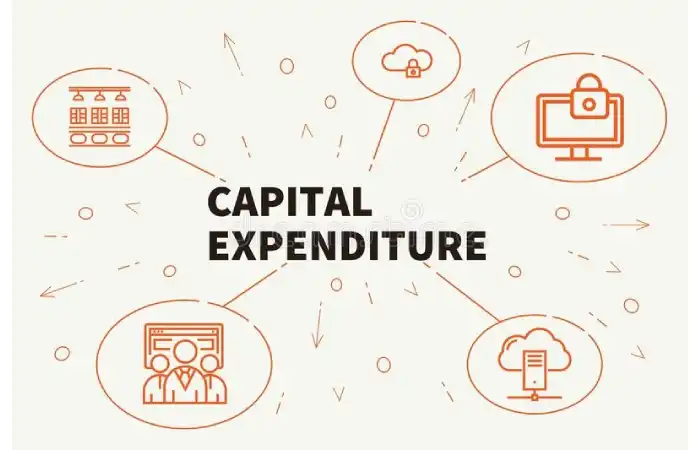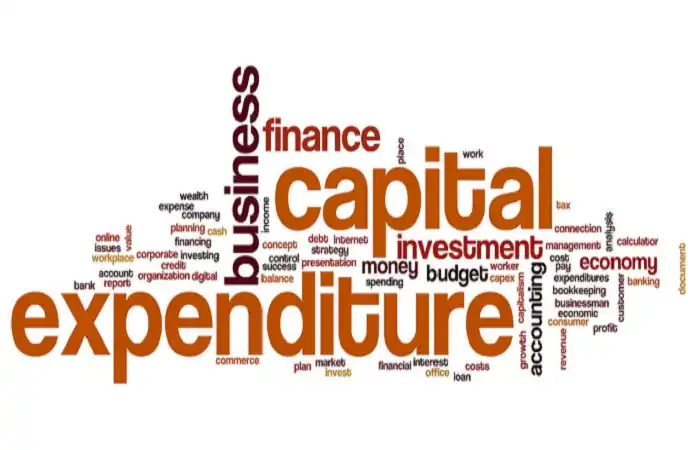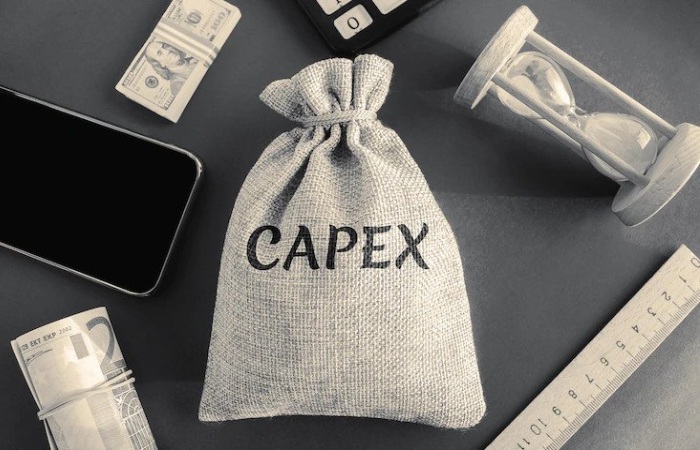 Capital Expenditure Write for us: Capital Expenditure (CAPEX) is the expenditure made by a stable to advance its long-term properties or to purchase new gear. It is a potent financial metric and helps financial analysts understand a company’s investment patterns.
Capital Expenditure Write for us: Capital Expenditure (CAPEX) is the expenditure made by a stable to advance its long-term properties or to purchase new gear. It is a potent financial metric and helps financial analysts understand a company’s investment patterns.
Capex is necessary for companies to grow or maintain business by investing in new property, plant, equipment (PP&E), products, and technology. Financial analysts and depositors pay close attention to a company’s capital expenditures, as they do not initially appear on the income statement but can significantly impact cash flow.
 What is a Capital Expenditure?
What is a Capital Expenditure?
Capital expenditure is the use of funds or assumption of liability to obtain or upgrade physical properties. The intent is for these assets to be used for productive purposes for at least one year—this type of expenditure makes to expand a business’s productive or competitive posture. Capital expenditures include funds paid out for buildings, computer equipment, machinery, office equipment, vehicles, and software.
An example of an asset upgrade is adding a service department onto a house since it increases the property’s value, whereas repairing a dishwasher merely keeps the machine in operation. Capital expenditures are substantial in specific industries, such as utilities and manufacturing.
From a financial analysis perspective, a business should maintain its historical capital expenditure level. Otherwise, it will suspect that management is not adequately reinvesting in the organization, eventually leading to a decline in the business.
Accounting for a Capital Expenditure
Capital expenditure is verified as an asset rather than charging it directly to expense. It is secret as a fixed asset, which is then set to expense over the asset’s useful life, using depreciation. For example, if you acquire $25,000 in help and expect a useful life of five years, then charge $5,000 to devaluation expense in each of the next five years. The asset is first recorded in the balance sheet, while the periodic reduction charges in contradiction appear in the income statement.
Since a record-keeping cost is associated with capital expenditures, these items are generally charged to expense if they cost less than a specific predetermined limit, known as the capitalization limit.
 When to Capitalize vs. Expense
When to Capitalize vs. Expense
The decision to expense or capitalize an expenditure is based on how long the benefit expects to last. The use will be expensed directly on the income statement if it is less than one year. If the gift is over one year, it must capitalize as an asset on the balance sheet.
For example, purchasing office supplies like printer ink and paper would not be capitalized but expensed. By contrast, the purchase of a building would provide a benefit of more than one year and thus be deemed a capital expenditure.
The Difference Between a Capital Expenditure and an Operational Expenditure
The reverse of capital expenditure is an operational outlay, where the cost is incurred strictly for current operations. Operational fees include administrative salaries, utility expenses, and office supplies. Always charge operating payments to costs when incurred. They are also known as period costs since they charge fees in the period incurred.
How to Calculate Net Capital Expenditure
Net capex calculate either directly or indirectly. In the direct method, an expert must add all the separate items that make up the total expenditures using a plan or office software. In an indirect way, the value can be inferred by looking at the value of properties on the balance sheet in aggregation with devaluation expense.
Direct method:
- Amount spent on asset #1
- Plus: Amount spent on asset #2
- Plus: Amount spent on asset #3
- Less: Value received for assets that sell
- = Net Capex
Indirect Method:
- PP&E Balance in the current passé
- Less: PP&E balance in the earlier period
- Plus: Reduction in the current period
- = Net Capex
Importance of Capital Expenditures
Choices on how much to invest in capital expenditures can often be an organization’s highly vital decisions.
They are essential because of the following reasons:
The effect of capital expenditure choices usually extends into the future. The range of current production or trade activities is mainly an effect of past capital expenditures. Also, the recent findings on capital expenditures will majorly influence the company’s future actions.
Capital investment picks are a driver of the way of the group. The long-term strategic goals, as well as the company’s budgeting process, need to be in place before the authorization of capital expenditures.
Irreversibility
Capital expenditures are often problematic to reverse without the business suffering losses. Most capital equipment is made-to-order to meet specific company foods and also needs. The market for used capital equipment is usually abysmal.
High Initial Costs
Capital expenditures are costly, especially for manufacturing, telecom, utilities, and oil exploration companies. Capital investments in physical assets like buildings, gear, or property can provide benefits in the long run but will need a sizeable monetary outlay initially.
Depreciation
Capital costs have an initial increase in the asset accounts of a group. However, once capital assets are in service, depreciation begins, and the investments decrease in value throughout their useful lives.
How to Submit Your Articles
To Write to Us, you can email us at contact@thewhoblog.com
Why Write for The Who Blog – Capital Expenditures Write for Us
 If you write for us, your business-targeted client may be a booklover of your blog; you can gain massive contact.
If you write for us, your business-targeted client may be a booklover of your blog; you can gain massive contact.- You can link spinal to your website in the article, which stocks SEO value with your website.
- This will help in structuring relations with your beleaguered audience.
- Our company is also on social media, and we will share your article on social links.
- If you write for us, you make discernibility and content globally.
Search Related Terms to Capital Expenditures Write for Us
capital expenditures
what are capital expenditures
capital expenditures definition
capital expenditures example
how to calculate capital expenditures
capital expenditures formula
capital expenditures examples
definition capital expenditures
capital expenditures meaning
how to find capital expenditures
capital expenditures budget
examples of capital expenditures
accounting for capital expenditures
calculating capital expenditures
capital expenditures vs operating expenses
capital expenditures vs revenue expenditures
Search Terms for Capital Expenditures write for us
Capital Expenditures Guest Post
Guest Post Capital Expenditures
Capital Expenditures + Write For Us
Write For Us + Capital Expenditures
Guest Post +
Capital Expenditures + Guest Post
Submit an article
Contribute Capital Expenditures
Guest Post + Capital Expenditures
Capital Expenditures Submit post
Capital Expenditures writers wanted
Article Guidelines on The Who Blog – Capital Expenditures Write for Us
- The Who Blog welcomes fresh and unique content related to Capital Expenditures
- The Who Blog allow a minimum of 500+ words associated with the Capital Expenditures.
- The editorial team of The Who Blog encourage promotional content connected to Capital Expenditures.
To publish the article on The Who Blog, email us at Contact@thewhoblog.com
Related Pages
Pharmaceutical Sector Write for us

